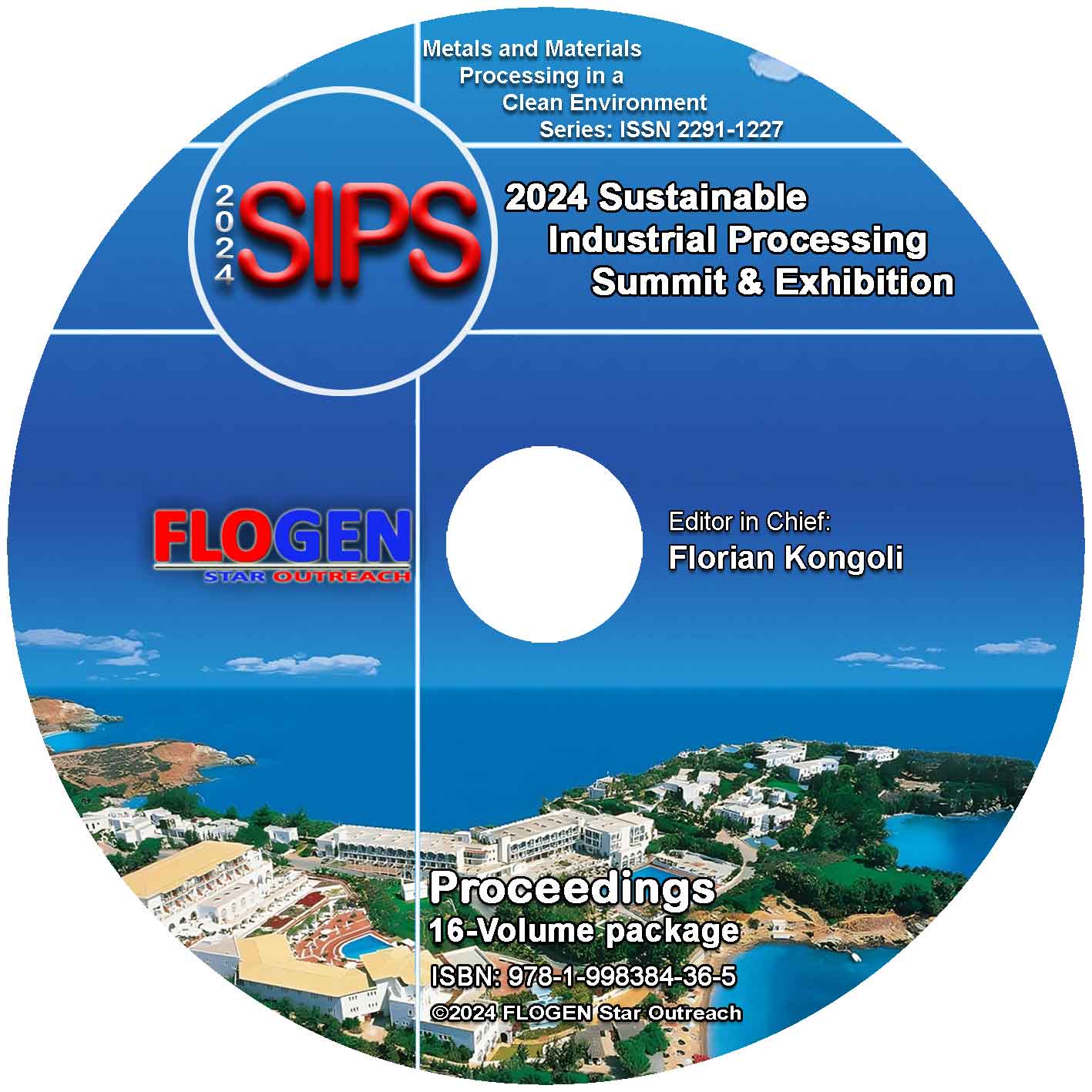2024 - Sustainable Industrial Processing Summit
SIPS 2024 Volume 1. Abe Intl. Symp. / Oxidative Stress and Technological Innovations in Medicine
| Editors: | F. Kongoli, H. Inufusa, T. Yoshikawa, C.A. Amatore, H-Y. Chen, W-H. Huang |
| Publisher: | Flogen Star OUTREACH |
| Publication date: | 23 December 2024 |
| Pages: | 218 pages |
| ISBN: | 978-1-998384-04-4 (CD) |
| ISSN: | 2291-1227 (Metals and Materials Processing in a Clean Environment Series) |

CD shopping page
LEGISLATIVE INNOVATION AND SUSTAINABLE DEVELOPMENT
Pierre da Silva Moraes1;1CÂMARA MUNICIPAL DE NOVA FRIBURGO, Nova Friburgo, Brazil;
Type of Paper: Regular
Id Paper: 440
Topic: 46
Abstract:
The dynamics of the 21st century – especially with the emergence of new and challenging technologies included in the Industrial Revolution 4.0, as well as in the face of the impactful and worrying climate changes suffered by the planet – demands necessary global discussion, particularly within the scope of the Legislative Powers and other actors of sustainability, regarding the elaboration and application of innovative legal measures that promote the adaptation, modernization and regulation of societies, especially in the necessary equitable, tolerable and viable contemplation of environmental, social and economic perspectives.
This scenario points to the establishment in law, by the Public Authorities, of respective sustainability criteria and their intersections as guides for effective planning and sustainable development, which, moreover, must be transversally considered in the progressive and strategic implementation of the 17 Sustainable Development Goals (SDGs) of the United Nations.
In this sense, the municipality of Nova Friburgo, in Brazil, emerges as an example, both for its powerful potential for sustainability and for its ongoing legislative renaissance in this area, especially since the advent of the new Municipal Organic Law (2018) and Complementary Law No. 167/2024, recently approved by the Municipal Legislative Branch and sanctioned by His Excellency Mayor Johnny Maycon Cordeiro Ribeiro, which “Institutes the FLOGEN method as a guiding instrument for the planning and sustainable development of the Municipality of Nova Friburgo, and provides other measures”, published on September 19, 2024, being the first law in the world with this specific scope.